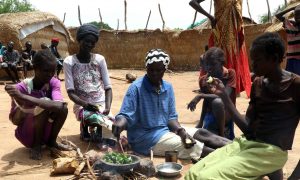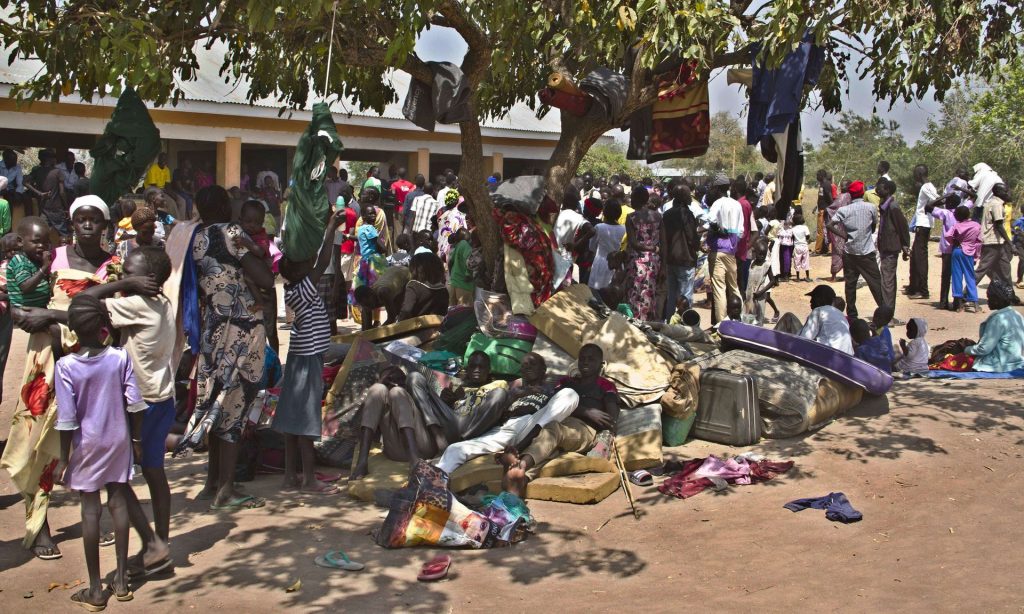An aid organisation in South Sudan has warned of severe food shortages, with the civil war spreading to rural areas of the country, cutting farmers’ access to their agricultural lands.

The aid group CARE told Al Jazeera that if the armed conflict continues, as many as one million civilians could go hungry in the region of Equatoria, adding 20 percent more people to the almost five million already facing starvation.
Fred McCray, country director of CARE aid group, said what is happening in Equatoria is “disheartening” because it is “traditionally the greenbelt of South Sudan” and is critical to the country’s food sustenance.
Dozen killed in South Sudan clashes
“This is an area with rich agricultural production, which families used to produce more than enough food or enough food to meet their basic needs,” he told Al Jazeera’s Hiba Morgan, who is reporting from Torit in Equatoria.
“So now you see a situation here where some of the most productive land in the country is not being farmed because people have been displaced from their homes.”
Tens of thousands have been killed and millions displaced by the country’s three years of civil war, which is being fought largely along ethnic lines.
In July, gun battles broke out between forces loyal to president Salva Kiir and former vice-president Riek Machar.
A peace deal, agreed under intense international pressure and the threat of sanctions, brought Machar back to Juba in April, but he fled after more clashes erupted and the violence has continued.
Disrupted by violence
Susan, a farmer and mother of four who fled the conflict in Equatoria, is now forced to work preparing mud to cover her neighbour’s cottage wall.
She said it is now impossible to farm, because gunmen are occupying farmlands in her village.
“When the conflict broke out, the situation was okay,” Susan told Al Jazeera.
“But since then they started killing people. If they find you in the farms they beat you, they force you to carry their things and then they leave you there, sometimes they kill you.”
The spread of violence and insecurity to parts of the country where the communities rely on farming means that they can no longer do that, even if those farms are less than 3km away like in Torit.
South Sudanese people who previously were able to depend on themselves for food are now forced to rely on aid to survive.
Josephine Abalang, state minister of information, told Al Jazeera that the fighting was temporary that the calm has returned.
“There were some few groups of gunmen that attempted to enter Torit so it did disrupt a little bit the routine cultivation of our farmers but since then, the situation has been stabilised so it has improved,” she said.
But for Susan, whose livelihood has been disrupted by the conflict, said she is yet to see that improvement and until she does, she will continue to struggle to be able to feed her children.
There are more than 12,000 UN peacekeepers in South Sudan. But they have been accused for failing to protect civilians during previous clashes between warring political forces.

